There are very few supplements that I put in the “miracle” category, but magnesium for alcohol withdrawal is definitely one of them. Many months after I quit drinking, I used magnesium to put an end to most of my post-acute withdrawal symptoms, which included:
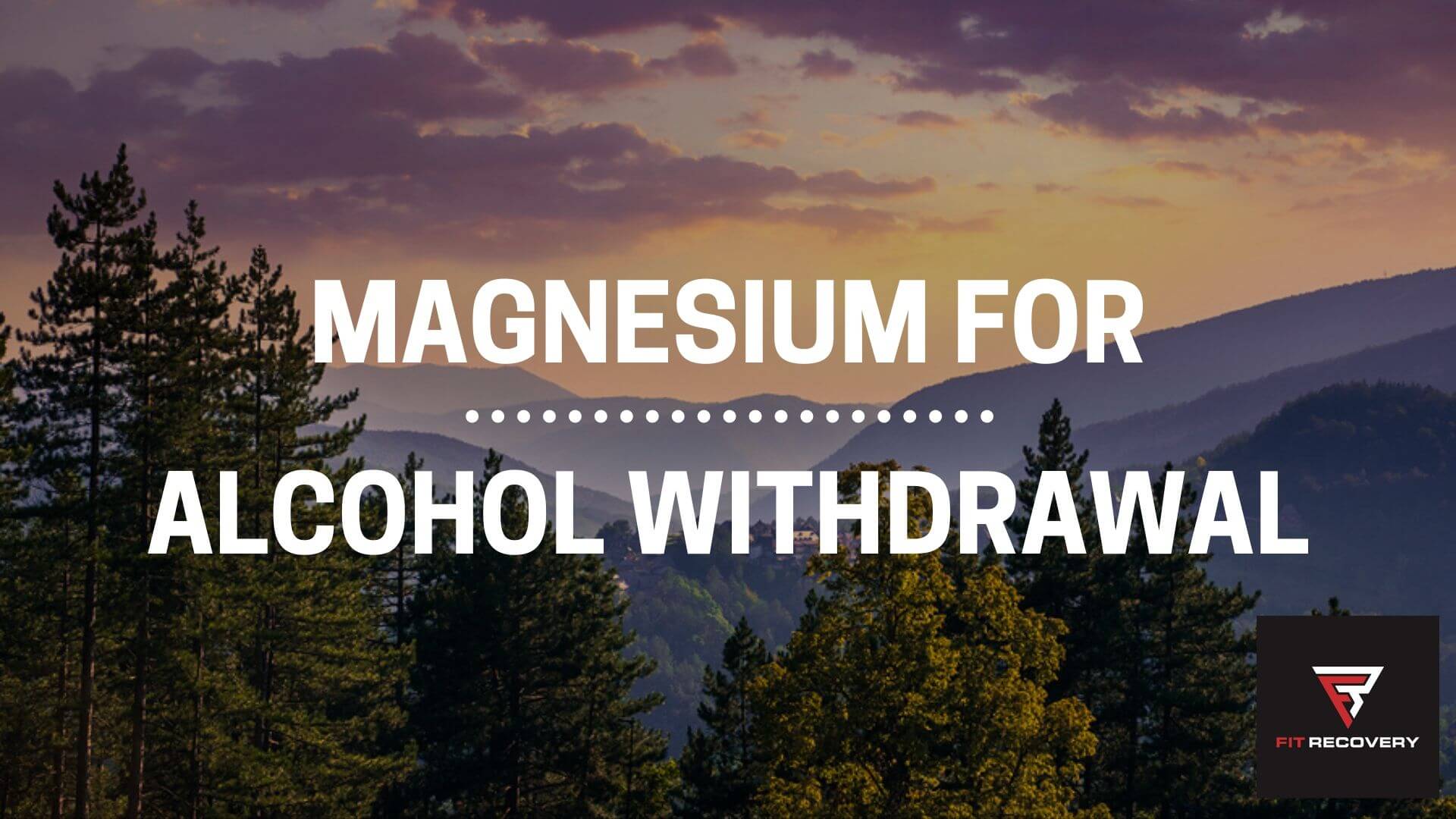
- Insomnia
- Restlessness
- Brain fog
- Anxiety
- Nervous fatigue
Even though I had begun to restore my brain health with a multivitamin, extra B-vitamins, and fish oil, it wasn’t until I began taking magnesium that the above symptoms finally abated.
At least 68% of the population and nearly all chronic alcoholics are deficient in this mineral. (source, source)
It’s not easy to reverse a deficiency with diet changes alone. To put it simply, if you’ve ever had a problem with alcohol, it’s very likely that you’re still deficient.
After reading this article, you’ll have a clear understanding of the benefits of using magnesium for withdrawal (including post-acute withdrawal). You’ll also know where to obtain the highest quality supplements and what dosage to use for your symptoms.
Overview of Magnesium
Magnesium is a mineral that is required for over 300 enzymatic reactions in your body.
Specifically, it performs several key functions:
- Necessary for proper nervous system function
- Necessary for proper neurotransmitter function
- Involved in DNA synthesis
Many doctors recommend this supplement to maintain cardiovascular health for people with heart problems.
Because chronic alcohol exposure causes damage to every organ in the body, it makes intuitive sense that this supplementation can help alleviate symptoms of withdrawal.

Moreover, heavy drinking significantly depletes magnesium from our bodies over time. Just one drink increases its excretion by 100%. Imagine how much is lost when a person drinks 10-20 drinks per day for months on end! I once fell into this category.
Magnesium can be obtained from foods like spinach, avocados, and almonds. Unfortunately, our soil has much less than it did before the advent of industrial farming.
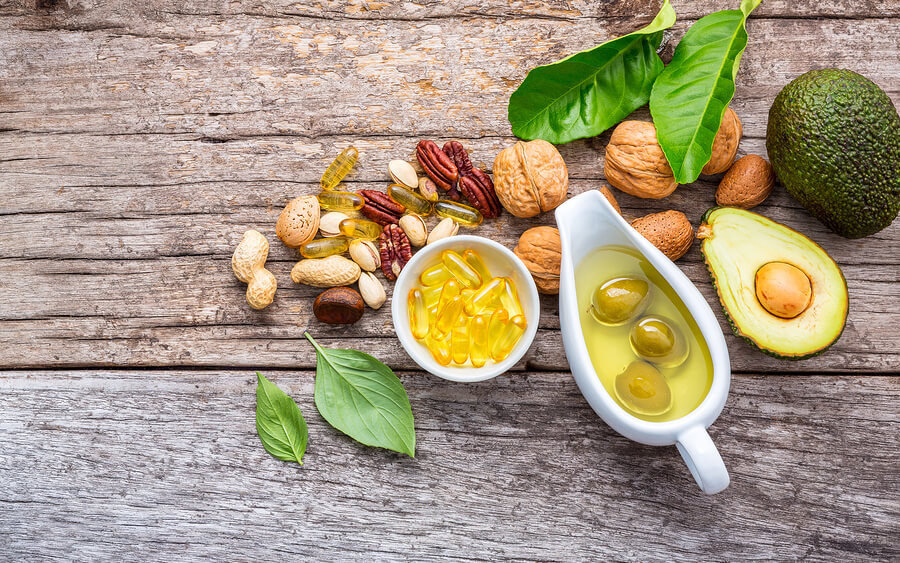
Symptoms of Magnesium Deficiency
Symptoms of a deficiency include the following:
- Anxiety
- Memory problems
- Fatigue
- Insomnia
- Irritability
- Apathy
- Muscle twitches
Serum blood tests can be misleading because most of the magnesium in our bodies is stored in our bones, muscles, and brains. As it turns out, only 1% of this mineral is stored in the blood!
It is common for blood tests to report “normal” levels for people who have a deficiency.
It is not necessary to determine the exact extent of your deficiency, for two reasons:
- Magnesium for alcohol withdrawal and post-acute withdrawal is very safe
- If you’ve been a heavy drinker for months or years, you almost certainly have some degree of magnesium deficiency
Before I quit drinking, I would take occasional Epsom salt baths and feel as though I might not have to drink that night. Of course, I usually ended up drinking anyway.
Epsom salt baths contain this mineral that is readily absorbed through the skin.
I never put two and two together. I never realized that much of the pain of withdrawal, which led to my severe cravings, was caused by severe deficiency!
It all became crystal clear to me one evening, months after I quit drinking when I finally decided to try an oral supplement. My restlessness went away, I slept like a baby, and I felt like my energy levels had reached an unprecedented high the next day.
Looking back, it’s frustrating for me to think about how long it took to solve this problem. The good news is that you don’t have to wait as long as I did to fix your alcohol-induced magnesium deficiency!
How Alcohol Causes Magnesium Deficiency

Alcohol depletes this mineral in three main ways:
- Liquid meals – Many alcoholics simply don’t consume enough quality foods that contain magnesium, often obtaining more calories from alcohol than food
- Diuretic toxin – One study found that just 30 ml of alcohol resulted in a 167% increase in magnesium excretion in the urine – an effect that lasted for two hours! (source)
- Stress hormones – Chronic alcohol use increases stress hormones like cortisol and adrenaline, which require large amounts of magnesium for their production
I should also note that chronic drinking damages the lining of the stomach and intestines, leading to problems absorbing nutrients. It can take weeks or months for an alcoholic to restore gut health, even with a proper diet and nutritional supplementation.
This is why, in addition to supplementing, I highly recommend taking probiotics and digestive enzymes.
These will help to restore balance to your gut and increase the absorption of everything you consume. I have found high-quality pancreatic enzymes at my local health food store and I drink kombucha on a regular basis.
Scientific Research

Scientific research supports this:
- As early as 1934, alcoholism was identified as the cause of low magnesium serum levels by causing excess magnesium excretion through the urine.
- A scientific paper concludes that chronic alcoholics should receive IV infusion of magnesium, thiamine, and other B-vitamins to help restore nutrient depletion from alcoholism.
- A study found that magnesium sulfate (i.e., epsom salts) diminishes the severity of withdrawal symptoms and reduces the need for benzodiazepines like ativan.
- A randomized clinical trial found that this mineral can reduce the risk of death from alcoholic liver disease.
- Deficiency in alcoholics increases the risk of death from cardiovascular disease and osteoporosis.
- It competes with a stress chemical called glutamate at the receptor site, thereby reducing stress while also mildly stimulating GABA, which is the brain’s calming chemical.
Consider these multiple benefits:
Magnesium can provoke a modest stimulation for the [GABA system] and is capable of reducing the oxidative stress in the brain, lowering the concentration of neurotoxic substances stimulating both synaptogenesis and neurogenesis in the limbic cortex, acting as an ameliorator in mid-crisis alcohol abstinence. [emphasis added; source]
My intensely positive experience with this supplementation may have meant that I was getting a variety of benefits at once:
- Increase in GABA
- Decrease in glutamate
- Detoxification of the brain
- Increased brain cell regeneration
This last benefit occurs primarily in the limbic cortex, which is the part of the brain responsible for intense cravings. I definitely noticed a significant decrease in my cravings during the period that I began supplementing!
Dosage
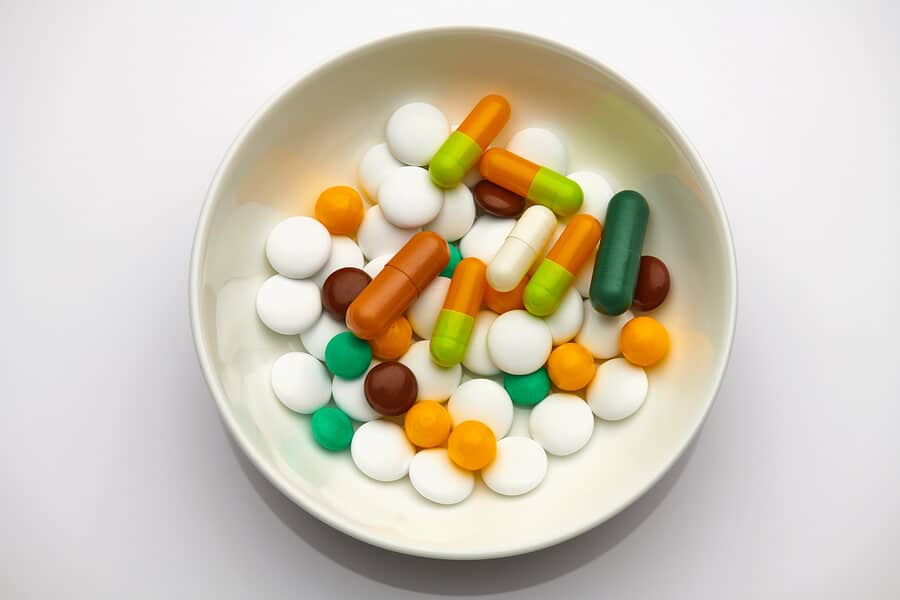
If you’re suffering from severe alcohol withdrawal, get professional help immediately. After detoxing, you can return to this site to learn how to address your nutrient deficiencies.
If you have recently quit drinking, you will want to consume at least 50-100 mg per day of a high-quality magnesium supplement to repair your system.
Alcoholics who begin supplementing with magnesium usually begin to feel noticeably better. Depending on the severity of the alcohol problem or gut damage that inhibits absorption, it may take a few weeks before feeling any positive effects from supplementation.
When I finally read about the benefits, I took 250 mg , which is very well absorbed. However, I currently use magnesium l-threonate and this form is absorbed just as well.
Do not use magnesium oxide, which is available at most grocery stores, but which is very poorly absorbed and can lead to diarrhea.
If I had to do it all over again, I would start by taking Calm Support, which delivers a daily dose of 54 mg of high-quality magnesium citrate per day. You can also kill several birds (or deficiencies) with one stone since Calm Support contains many compounds that have been proven to alleviate withdrawal.
Your ideal dosage and duration will depend entirely on the severity of your drinking problem.
I was often drinking two-fifths a day of hard liquor by the time I quit!
This explains why I experienced such relief from a large dose (250 mg) many months after I’d quit drinking.
If you want to megadose like I did, then I recommend taking Calm Support along with magnesium l-threonate by Life Extension. This is the brand that I now use, and each serving contains 144 mg of magnesium l-threonate.

If I wanted to address a pronounced magnesium deficiency by megadosing, I would take:
- 4 capsules per day of Calm Support (2 in the morning, 2 before bed)
- 3-6 capsules per day of Life Extension’s magnesium l-threonate
In total, I would be taking 150 – 300 mg per day. This is a safe amount for the duration (probably a month or two) that it would take to restore my system.
Always consult with your doctor before beginning new supplements or lifestyle changes.
Conclusion
If you’ve enjoyed reading this article, be sure to read my article on alcohol recovery supplements. In that article and others like it, I’m not arguing that you need to take every remedy I discuss.
With nutritional repair and natural remedies, trial and error is the best approach. I’ve never had a bad reaction to vitamins or natural supplements. Some have simply worked much better than others. Magnesium is one of several “miracle supplements” that have changed my life.
Of course, getting fit and improving my diet played a huge role in my recovery as well. I can’t overstate the importance of exercise and nutrition for conquering addiction.
Despite all of the pharmaceutical options for addiction, scientists have long understood the necessity of using basic nutrients for withdrawal and biochemical restoration.
High-quality supplements are much safer than prescription drugs that merely mask the symptoms of underlying nutrient deficiencies. Untreated deficiencies can cause serious complications down the road, including depression and degenerative disease.
If you have any questions, please post them in the comment box below.

Authors
-
A decade+ addiction-free, Chris Scott, the visionary founder of Fit Recovery, passionately guides Fit Recovery 2.0 Members toward a vibrant, healthier lifestyle. Through the integration of groundbreaking nutritional strategies, transformative reframing techniques, neurolinguistic programming, and dynamic pro-recovery habit systems, he inspires individuals to boldly take charge of their lives and break free from alcohol. Chris is celebrated as a Professional Member of the Alliance For Addiction Solutions. Moreover, he is the proud author of the bestselling book "Drinking Sucks!" which stands as a vital beacon of hope for those yearning to quit drinking. Additionally, he created the celebrated online program Fit Recovery 2.0, designed to provide unwavering support for individuals embarking on their recovery journey.
View all posts Fit Recovery Founder & Director -
Dr. Rebeca Eriksen is the Nutritional Consultant for Fit Recovery. She has a PhD in Nutritional Genetics from Imperial College London, and over ten years of clinical experience designing custom nutritional repair regimens for patients recovering from alcohol addiction. In addition to her work at the exclusive Executive Health clinic in Marbella, Spain, she helps to keep Fit Recovery up to date with emerging research.
View all posts







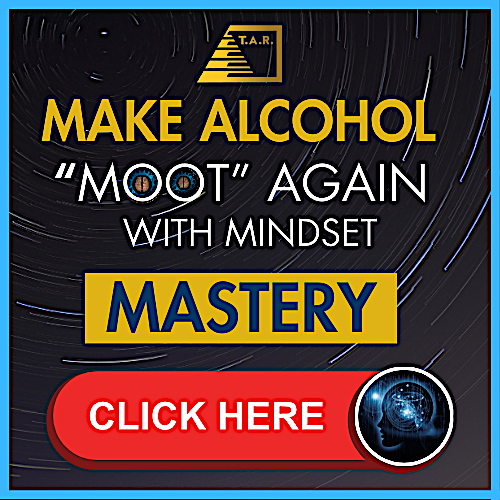
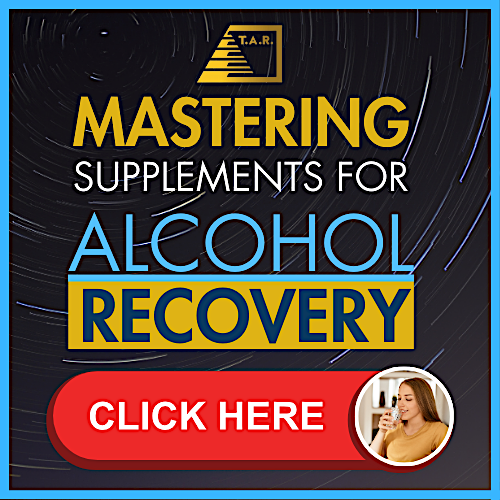
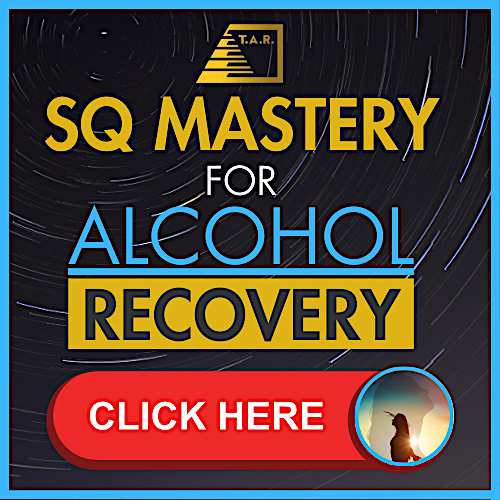


Thoughts on the use of Magnesium Biglycinate (Solagar)? The dose is 300mg (3 tablets) per day. Should one take magnesium in the morning or before bed? Fantastically written and researched article….your site is a veritable treasure trove of information for dealing with the woes of alcohol withdrawal….nearing the end of week one. Thank you for your stellar writing and sharing of extremely helpful information. That alone helps lessen the ‘anxiety’. Perhaps knowledge IS power!
Hi Donna, great to hear that you’ve enjoyed Fit Recovery! There are now many more forms of magnesium than when I started writing years ago, and all of them seem to be better than magnesium oxide. The one you mention sounds like a variation of magnesium glycinate, which is well asborbed. 300 mg per day sounds reasonable, perhaps even on the lower end for the first week or so off of alcohol, depending on body weight etc. Knowledge is certainly power! I should tell you that my best information is in my online course, which also has a very supportive… Read more »